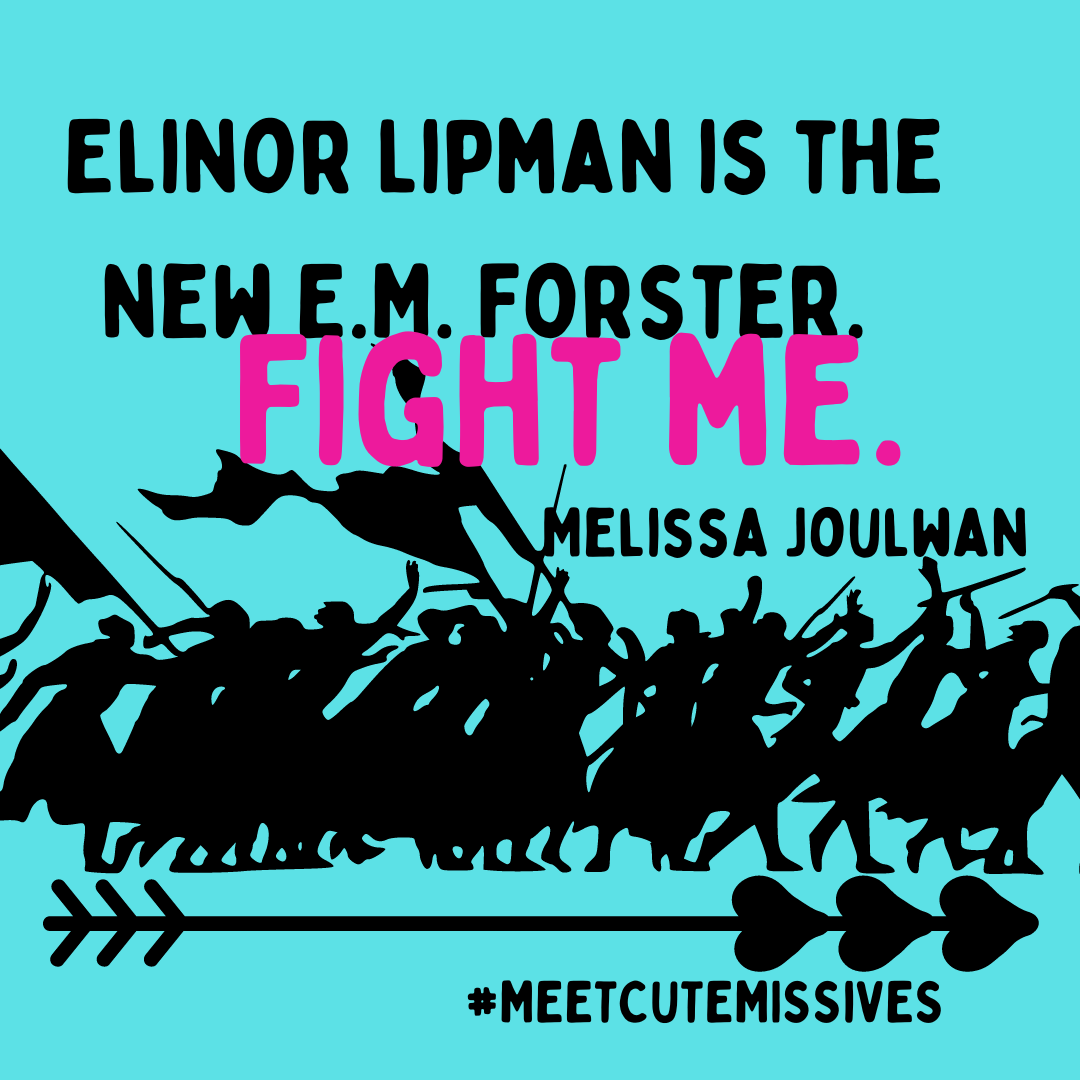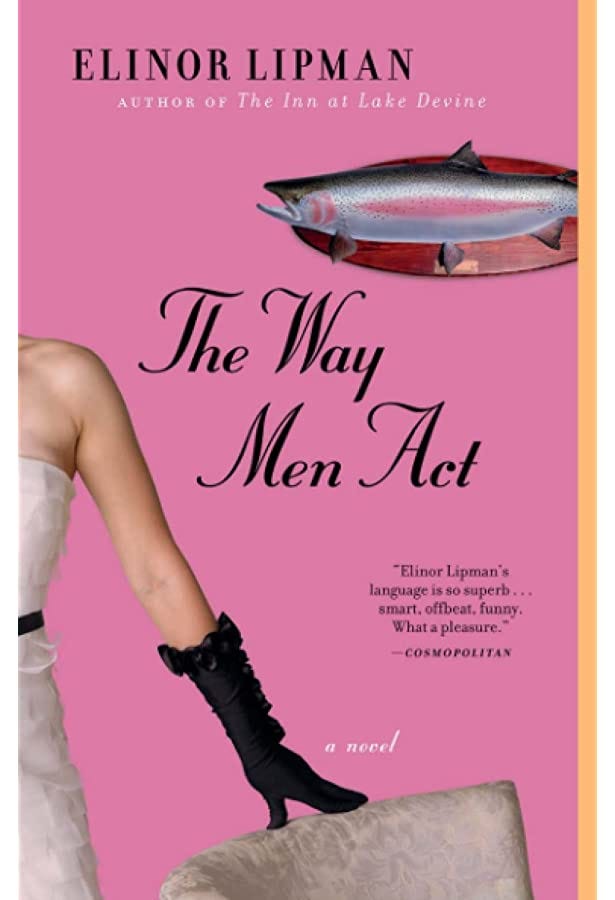Elinor Lipman is the new EM Forster. Fight me
Her characters are delightful company, and she's not afraid to sucker punch you with painful plot surprise
My reading journal from the 1990s is filled with dark thrillers (Minette Walters), British mysteries (Elizabeth George, Dick Francis), and American detectives (Robert Crais, Michael Connelly). That was also my 'read everything you can about WWII' phase. (I devoured The Diary of a Young Girl by Anne Frank at just the right age, and it made an impression on me that's never dimmed.) If my '90s bookshelf was a person, it would have been a pale, emo-leaning girl with a predilection for black eyeliner, stompy boots, and big feelings.
But sprinkled among those stories of suspense and heartbreak were the sparkly, pastel-colored novels of Elinor Lipman. She's often compared favorably to Jane Austen for her comedies of manners; the Chicago Tribune said, 'If Jane Austen had been born about two centuries later, chances are she'd have written like Elinor Lipman.'
She reminds me of another classic author, however. When I read her books, they feel like cousins to E.M. Forster's A Room with a View. Like his coming-of-age story about the charming Lucy Honeychurch — who is almost always in a muddle of her own making — Lipman's stories are moving, funny, biting, and filled with details that anchor them firmly in time and place. To me, her heroines are modern versions of Lucy: They would be just fine if they trusted their instincts, but instead, they worry far too much about other people's expectations. That is until they gloriously don't.
I am an Elinor Lipman Completist
This is where I should probably admit that I am an Elinor Lipman completist; I've read all of her 14 novels. But I am also an E.L.' hipster.' You know how people will say, '[city name was so much cooler 10 years ago]' or 'I love [band name], but only their first album?' Well, my favorite Elinor Lipman novels are her second, third, and fourth: The Way Men Act, Isabel's Bed, and The Inn at Lake Devine.
I can't recall what drove me to pick up her first book, Then She Found Me, in 1990. It certainly can't have been the cover: an illustration of two not-overly-appealing women framed by just-out-of-the-80s typography and graphic design.
The reason why is lost to time, but I did read it. I remember nothing of the experience — the notation in my reading journal includes only the title, author, and date — but I must have liked it well enough because I picked up Lipman's second novel — and The Way Men Act burrowed its way into my heart.
Her 1992 novel tells the story of Melinda LeBlanc, a one-time high school popular girl. After failing to set the world on fire, she's back in her hometown, living with her mom. 'We worked this out, my third-floor privacy, before I returned to Harrow. She had no idea how homesick I had been and how few concessions she had to make.'
Melinda works at her cousin's flower shop, creating 'arty' arrangements for the local college, and enjoys a friends-with-benefits situation with a wedding band musician. Thus, her Saturday nights are covered. Libby, the owner of the quirky dress shop next door to Forget-Me-Not florist, is a willing participant in another relationship of proximity with Melinda. And soon, they're both swooning over Dennis — handsome owner of the über-popular fly fishing store down the block — while decidedly pretending that they are not, in any way, swooning over Dennis.
The Steel Beneath the Sparkle
For me, this book is where Elinor Lipman honed her ability to tell a wildly engaging love story while tackling deeper issues with a hand so deft you barely notice the steel beneath the sparkle.
In The Way Men Act, she affectionately skewers the politics and pretensions of life in a small college town — the backroom deal-making, the backstabbing gossip, the past glories that shape the present, and the grudges that simmer under polite conversation. All of that unfolds with laughter, snarkiness, and moments of heart-melting tenderness.
This is also where Lipman established the model for her heroines: They're befuddled and endearing, often blind to the qualities that make them so much cooler than they know. Even when foolish or hurtful words burst from their mouths — or they act on impulses that would be better ignored — we can't help but root for them.
Although this book, too, lacks detail in my reading journal, I vividly remember the first time I read it. Or, more accurately, when my now-husband read it to me. We were a new couple the year The Way Men Act was published. One night, in the kitchen of the house we'd just rented together, he read to me from the book while I cooked dinner. He'd reached the chapter in which our heroine Melinda and the man she's meant to be with finally realize they've been acting like nincompoops.
My husband is an excellent human audiobook — his voice is warm and rumbly, and he doesn't read too quickly — but the thing that pierced my heart at that moment was the realization that he was moved by the story. Elinor Lipman got him, too.
Lipman's next book, Isabel's Bed, was published in 1995. The unlikely heroine of that story is perpetually rumpled and lost Harriet Mahone, a 40-something writer in Manhattan whose career and relationship are sputtering. She's yet to find her voice, both literary and personal.
Perfectly Crafted Moments of Hard Truths and Hilarity
Poor Harriet! She's derided by her writing group and her long-time boyfriend before the selfish jerk dumps her. Even more lost than before, she accepts a most unlikely writing gig: She will ghostwrite the autobiography of the larger-than-life tabloid queen Isabel Krug, the other woman in a scandalous murder case. In exchange for documenting Isabel's (gl)amorous life, Harriet will live with Isabel in a beach house on the dunes of Cape Cod.
In 1995, I was a 27-year-old who often felt like my life was waiting to start. I couldn't imagine what 40 might be like. But as a wannabe writer, I could achingly relate to the pain of trying to find my voice as a woman, as a partner, and as a creative person. Going along for the ride as Harriet questioned everything she thought she knew about life — through Lipman's perfectly crafted moments of hard truths and hilarity — helped me figure out what I knew and didn't.
By the time my final favorite, The Inn at Lake Devine, was published in 1998, I was a Lipman devotee, at the bookstore on release day to get my hands on the new title. This one might be closest to my heart for its message that love will find a way. Even if it grows from tragedy, even if there are misunderstandings, and even if you think your heart is broken in a way that can never be reversed, love finds a way.
But that — the 'love finding a way' bit? — it's not apparent that will be the case when we meet Natalie Marx. Because Natalie's story begins with a travesty. It's the 1960s, and the Marx family is preparing for their annual vacation to Vermont.
Her mother sends a request to the Inn at Lake Devine, and the response from the owner Mrs. Ingrid Berry, ignites Natalie's sense of justice:
'The Inn at Lake Devine is a family-owned resort, which has been in continuous operation since 1922. Our guests who feel most comfortable here, and return year after year, are Gentiles.'
Those two brief, painfully formal, outrageous sentences set Natalie on a path that changes her life.
To reveal much more would spoil the fun, but I can concede this: The childhood Natalie wriggles her way into the Inn and the Berry family in ways no one expects. And when adult Natalie returns to the Inn in the '80s, romantic hijinks ensue. Food plays a significant part in the plot, and there's charming banter and moments of delicious flirtation among real, messy people who make real, messy mistakes.
Eleanor Lipman's characters are delightful company, and she's not afraid to sucker punch you with painful plot surprise. That's what makes her books so enduringly charming and relatable. We know the characters (and we) will get a happy ending, even if the road there is riddled with potholes. That's a bit of literary confetti that even I, stompy boot devotee that I am, cannot resist.
Melissa Joulwan is the co-creator of Strong Sense of Place, a website and podcast devoted to literary travel and books with vivid settings. In each episode of the show, she and her husband David get curious about one destination and discuss five great books that took them there on the page. They also produce the short-form podcast The Library of Lost Time featuring two new book releases and a fun book- or travel-related distraction. Mel is also the author of the best-selling Well Fed cookbook series and the memoir Rollergirl: Totally True Tales From the Track. Learn more about Strong Sense of Place and get your hands on the free (beautiful) SSoP Reading Atlas at www.strongsenseofplace.com.








